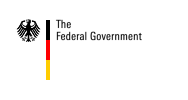Diverse types of cooperation
Development cooperation is a task to be shared by both state and society, and in this the NGOs are indispensable partners. They play an ever increasing role in development cooperation, and the Coalition Agreement explicitly emphasizes the value of the forces of civil society.
The Federal Ministry for Economic Cooperation and Development (BMZ) provides substantial funding to support the important development work done by civil society organisations, e.g. political foundations, churches and private institutions.
In 2005, the BMZ gave development NGOs some 6 million euros for publicity and education work on development policies alone.
>> Church Development Service (EED)
>> Association for Development Cooperation (AGEH)
Environmental protection is another field in which dialogue between state institutions and interested NGOs is long-established. Much has been achieved since the emergence of the first local action groups. Since then, many NGOs have become organisations active in the international arena, whose activities and contributions to discussion attract worldwide attention.
Now, the cast of environmental actors is not limited to action groups and environmental organisations, but also includes the media and the global environmental science network. All are environmental actors in their different ways. And their influence is not restricted to politics. Conflict and direct collaboration with business, at many different levels, is both part of the new picture.
There are also many fruitful relationships in the field of consumer protection. The Federal Government supports, for example, the work of consumer organisations such as the Stiftung Warentest and the Federation of German Consumer Organisations
>> Federation of German Consumer Organisations
And together with the Plattform Ernährung und Bewegung (Platform Diet and Physical Activity) coordinating committee, the Federal Government is promoting a balanced diet and physical activity among children and young people.
